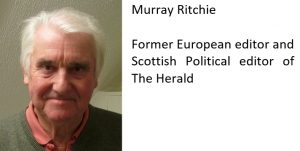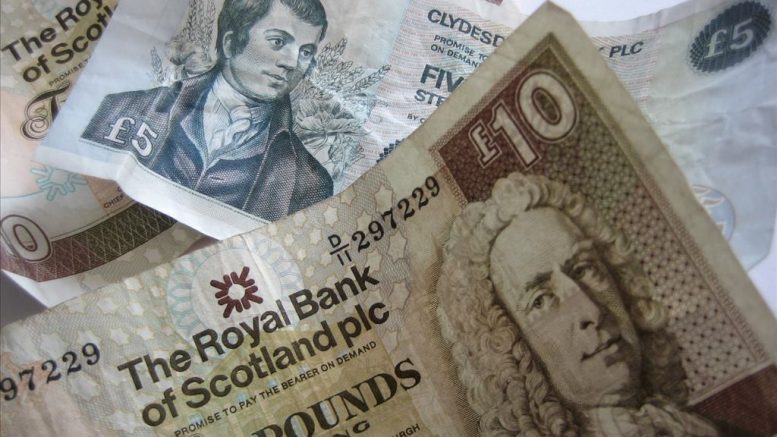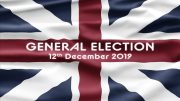… but university education, concessionary travel, pharmaceutical prescriptions and personal care are still free, writes Murray Ritchie.
For the first time the United Kingdom has different rates of income tax in Scotland and the rest of the country.
Eighteen years after the Scottish parliament was created MSPs have at last found the courage to change income tax rates. Until now they have had the power only to raise or lower the basic rate of income tax by three per cent. That power has never been used for fear of voter hostility.
But this year a new tranche of powers is being devolved to Holyrood, including setting bands and rates of income tax. The hard-up Scottish National Party (SNP) government has been forced to take the plunge knowing that putting up income tax would be unpopular and reducing it impractical.
On one side they had the Tories wanting Westminster’s raising of the 40 per cent threshold applied in Holyrood. On the other they had Labour and the Liberal Democrats wanting tax increases.
In the event, the SNP did neither. It chose instead simply to ignore the new increased threshold across the rest of the UK and leave the rate in Scotland unchanged. This means that from this year Scots – mainly middle-class earners – will pay roughly £400 a year more than their counterparts in England, Wales and Northern Ireland.
Derek Mackay, the Scottish finance minister, did a deal with the Greens to force his budget through Holyrood so that Scots will start paying the 40 per cent rate at £43,000. This will adversely affect about 370,000 Scots who now do not qualify for the £45,000 threshold across the rest of the UK in April.
The vote was predictable. Labour, Tories and Liberal Democrats, all Unionists, voted against the SNP and Greens, all supporters of independence. In other words, the decision reflected the permanent fault line in Scottish politics: independence.
With no deal, Scotland would have been faced with a general election that no party wanted ahead of the May local elections. Polls suggest the SNP will make further gains, with Glasgow – Scotland’s biggest city and Labour’s biggest stronghold – as the nationalists’ prize target.
Tories denounced the decision for “making Scotland the highest taxed part of the UK”, with their shadow finance minister, Murdo Fraser, claiming that the SNP “might as well have put a sign up at the Border saying ‘closed for business’”.
But Mr Mackay says the change will go towards finding £160 million in new money for local councils – a Greens’ demand – while the £7.70 weekly cost to higher-rate taxpayers would not amount to a single prescription in England.
Scotland’s leader Nicola Sturgeon said talk of Scotland being the highest-taxed part of the UK was rubbish. She argued that income tax was only a part of the bigger picture, with Scots benefitting from free university education, concessionary travel, free prescriptions and free personal care.
By Murray Ritchie

Featured Image Credit: © Howard Lake
and licensed for reuse under this Creative Commons Licence




